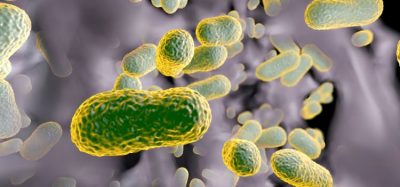EMA recommends suspension of hydroxyprogesterone caproate medicines
Posted: 17 May 2024 | Caroline Peachey (European Pharmaceutical Review) | No comments yet
The recommendation comes after studies raised possible safety concern and found 17-OHPC is not effective in preventing premature birth.


EMA’s Pharmacovigilance Risk Assessment Committee (PRAC) has recommended the suspension of the marketing authorisations for medicines containing 17-hydroxyprogesterone caproate (17-OHPC) in the European Union.
The recommendation follows a review by the PRAC, which concluded that there is a “possible but unconfirmed risk of cancer in people exposed to 17-OHPC in the womb.” The review also considered new studies, which showed that 17-OHPC is not effective in preventing premature birth.
A synthetic form of hydroxyprogesterone, 17-OHPC, naturally occurs in the body and is formed from progesterone. It is thought to attach to receptors on cells that normally are targeted by progesterone.
In Austria, France and Italy, 17-OHPC medicines are authorised as injections to prevent pregnancy loss, premature birth or for treatment of other disorders.
EMA stated: “In view of the concern raised by the possible risk of cancer in people exposed to 17-OHPC in the womb, together with the data on the effectiveness of 17-OHPC in its authorised uses, the PRAC considered that the benefits of 17-OHPC do not outweigh its risks in any authorised use.”
“The committee is therefore recommending the suspension of the marketing authorisations for these medicines. Alternative treatment options are available.”
Studies on hydroxyprogesterone caproate
In a statement, EMA said its safety committee reviewed the results from a large population-based study, which looked at the risk of cancer in people who had been exposed to 17-OHPC in the womb, over a period of about 50 years from the time they were born.
Data from this study suggest that these people might have an increased risk of cancer compared with those who were not exposed to the medicines”
“Data from this study suggest that these people might have an increased risk of cancer compared with those who were not exposed to the medicines,” the PRAC noted. However, the safety committee acknowledge that there was a “low number of cancer cases in the study” and that the study had “some limitations”.
The committee also considered data from another study, which involved over 1,700 pregnant women with a history of preterm delivery. That study found that 17-OHPC is “no more effective than placebo in preventing recurrent premature birth or medical complications due to prematurity in newborns.”
The committee also reviewed two additional meta-analyses. also confirmed that 17-OHPC is not effective at preventing preterm birth.
Additionally, EMA sought input from experts in obstetrics, gynaecology and fertility treatment, as well as patient representatives.
Related topics
Clinical Development, Drug Safety, QA/QC, Regulation & Legislation









